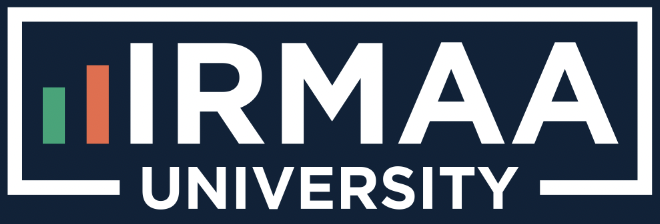Understanding Retirement Income Planning: A Guide
Retirement income planning is crucial for financial security. It requires strategic decision-making and meticulous preparation. It’s not just about saving money, but also understanding when to start, how much you’ll need, setting priorities, and selecting appropriate accounts and investments.
When to Start Planning for Retirement Income
It’s never too early to start thinking about your golden years, but most financial professionals recommend starting serious preparations at least 10-15 years before your planned retirement date. Don’t delay – act now.
Estimating Your Retirement Funds
Estimating how much money you’ll need after retiring is crucial. A common rule suggests that retirees should aim to replace approximately 70% to 90% of their annual pre-retirement income through retirement savings and Social Security benefits. However, this figure can vary depending on individual lifestyle choices and expenses. Check out this calculator to help you estimate your retirement needs.
Setting Priorities in Your Plan
Make sure your plan prioritizes ensuring sufficient funds for necessary living expenses like housing costs or medical bills over discretionary spending such as travel or entertainment. This helps ensure basic needs are met even if market conditions aren’t favorable or unexpected expenses arise during retirement.
Don’t forget about the distribution phase (spending) of your income plan for retirement. Create a withdrawal retirement strategy that minimizes tax liabilities while providing a steady stream of income throughout your golden years. The goal is not just to preserve wealth, but to provide sustainable lifetime cash flow, thus reducing the chance of outliving your resources.
Role of Social Security Benefits in Retirement Income
When it comes to retirement income planning, Social Security benefits are a key factor that can’t be overlooked. These benefits typically start at age 62, but they’re not set in stone. Depending on your personal circumstances and financial goals, you might choose to claim these benefits earlier or delay them for an increased payout.
Commencement Age for Social Security Benefits
The decision about when to start receiving Social Security payments is a critical one. While the earliest you can begin claiming is at age 62, each year you wait increases your monthly benefit amount up until age 70. This increase could significantly boost your total lifetime earnings from Social Security if you live well into old age.
Early Claiming Versus Delayed Claiming
Claiming prior to reaching full retirement age (varying from 66-67, depending on birth year) may result in a decrease of the monthly benefit amount, based upon how many months ahead of the designated time frame. On the other hand, if you delay claiming past full retirement age up until turning 70 years old, every month delayed adds credits which increase future monthly payouts – this strategy known as “delayed retirement credits”.
To illustrate: If born after January 1st ,1954 maximum credit possible would equal additional payment approximately eight percent per annum above normal rate received had claimed exactly upon reaching full-retirement-age . So effectively those who able afford waiting longer potentially stand gain substantially over long-term assuming reasonably good health condition allowing enjoy fruits patience later life . However , there’s no ‘one-size-fits-all’ answer here since individual circumstances greatly vary therefore wise consult with trusted financial advisor like us here at Healthcare Retirement Planner before making such important decisions .
Key Takeaway:
Social Security benefits are an important factor in retirement income planning, and the decision of when to start receiving payments is critical. Claiming early results in a reduced monthly benefit, while delaying can lead to increased payouts through delayed retirement credits. It’s important to consult with a trusted financial advisor before making any decisions about Social Security claiming strategies.
Investment Strategies Based on Age
A sound investment plan is essential to achieving retirement objectives, guaranteeing that the necessary resources are available when needed. The right strategy largely depends on the investor’s age, risk tolerance, and time horizon until retirement.
Aggressive Portfolios for Younger Investors
Younger individuals often have more aggressive portfolios due to their longer time horizon until retirement. They can afford to take higher risks with investments like equities, which offer potentially higher returns over the long term despite short-term volatility. This approach capitalizes on the power of compounding, allowing wealth to grow exponentially over decades.
- Equities: Stocks represent ownership shares in companies and generally provide high potential returns over the long term at a greater level of risk.
- Mutual Funds: These are pools of funds from multiple investors that are managed by professionals who allocate money across various asset classes based on specified investment objectives.
- Exchange-Traded Funds (ETFs): ETFs combine features of mutual funds and stocks, offering diversification along with flexibility to trade throughout the day like individual stocks.
Transitioning Towards Conservative Investments as One Nears Retirement
In contrast, those nearing retirement gradually transition towards more conservative investments minimizing potential losses from market volatility. As you get closer to your golden years, preserving capital becomes increasingly important since there is less time available for markets to recover after downturns before withdrawals begin. Fidelity suggests shifting portfolio allocation towards bonds and other fixed-income securities during this phase.
- Bonds: Bonds or fixed income securities provide regular interest payments while returning principal upon maturity – making them suitable for generating steady income streams post-retirement.
- Certificates Of Deposit (CDs): CDs offered by banks guarantee return of principal along with a fixed rate of interest if held till maturity.
- Annuities: Insurance products designed specifically for providing guaranteed lifetime income during retirement years.
Key Takeaway:
This section discusses investment strategies for retirement income planning based on age. Younger investors can afford to take higher in retirement plans risk with aggressive portfolios that include equities, mutual funds, and ETFs. As one nears retirement, it is advisable to transition towards more conservative investments like bonds, CDs and annuities to minimize potential losses from market volatility and generate steady income streams post-retirement.
Personal Retirement Accounts – An Alternative Solution
Don’t have access to a workplace retirement plan? No problemo. Personal Retirement Accounts are here to save the day and secure your financial future.
Significance of IRAs
IRAs are a type of personal retirement plan that offer tax advantages for your savings. They’re perfect if you want to take control of your own retirement planning and don’t have an employer-sponsored plan. Check out Investopedia for more info on the different types of IRAs and their benefits.
The best part about IRAs is their flexibility. You can contribute money on your own terms, within IRS limits, whether you’re self-employed or working part-time without a pension plan.
Tax Advantages Offered By IRAs
The main attraction of IRAs is the potential tax benefits. Depending on the type of IRA you choose – Traditional or Roth – you could get deductible contributions (lowering taxable income now), tax-free growth, or even tax-free withdrawals in retirement under certain conditions.
- Deductible Contributions: If eligible, you can deduct your full contribution from taxable income, providing immediate saving benefits.
- Tax-Free Growth: Investment earnings grow free from taxes until withdrawal, meaning more money stays invested and compounds over time, leading to a larger account balance.
- Tax-Free Withdrawals: With a Roth IRA, after meeting certain conditions, all distributions including earnings are completely free from federal taxes during retirement.
To sum up, if traditional employer-sponsored plans aren’t available, personal retirement accounts like IRAs offer viable alternatives with significant potential returns due to their unique structure and various taxation advantages. They’re worth considering as an integral part of any comprehensive post-retirement financial strategy.
Importance of Considering Healthcare Costs in Post-Retirement Financial Planning
Forget what you thought you knew about retirement savings and planning and your retirement goals. Things have shifted and so has the system. One of the most important things to consider now is IRMAA – the Income Related Monthly Adjustment Amount. Considering IRMAA could prove to be a beneficial decision in the long run.
What is IRMAA?
IRMAA is an extra charge added to Medicare Part B & D premiums for higher-income retirees. It’s not something you want to ignore, so check out the official Medicare website for more information.
How Does IRMAA Affect Your Medicare Premiums?
If you made a lot of money two years ago, you could be paying a lot more for your healthcare coverage now. That’s because IRMAA surcharges can significantly increase your Medicare Parts B and D premiums. The Social Security Administration has a guidebook that explains it all in detail.
As financial professionals, we need to make sure we’re taking these potential healthcare expenses into account when we’re helping clients plan for retirement. That’s why we use tools like our ‘Healthcare Retirement Planner‘ to calculate costs accurately. Ensuring our customers can relish their retirement without being concerned about funds is the most ideal approach.
Options Available to Small Business Owners and Self-Employed Individuals
Although pension schemes may not be accessible to small business owners and self-employed individuals, there are still several other ways to ensure a secure retirement. But don’t worry, there are still several viable alternatives available to help secure your financial future in retirement.
Benefits of Simple IRA’s for Small Business Owners
A SIMPLE IRA, which stands for Savings Incentive Match Plan for Employees Individual Retirement Account, is one such option. These plans allow both employers and employees to contribute with pre-tax dollars, meaning the money grows tax-deferred until it is withdrawn in retirement. This can significantly increase the growth potential of your savings compared to regular saving methods alone.
- SIMPLE IRAs are easy to set up and maintain.
- The contribution limits are higher than those of traditional IRAs.
- Both employers and employees can contribute towards these accounts.
Why Bonds Are a Popular Choice Among Savers?
Bonds represent another popular choice among savers due to their relative stability compared with stocks. While they don’t offer as high returns as equities might during bull markets, they provide consistent income through interest payments and return the face value of the bond upon maturity. The U.S Securities and Exchange Commission (SEC) provides comprehensive information on how bonds work if you’re considering this investment route.
- Bonds typically have lower volatility than stocks, making them less risky investments, particularly suitable for older individuals nearing retirement age who cannot afford significant losses from market downturns.
- The predictable income generated by bonds makes them attractive options for retirees looking for stable cash flows to supplement other sources like Social Security benefits or pensions.
Adopting a Cautious Stance Towards Equities at Older Ages
As we age, the financial landscape changes significantly. The strategies that worked during our younger years may not be as effective or suitable when approaching retirement. High-risk investments such as stocks may provide attractive returns, but should be handled with caution in later life.
Caution Advised Against Equity Exposure at Older Ages
The majority of financial advisors recommend clients to adopt a cautious stance towards equities in their later years in regards to retirement goals. This advice stems from the substantial appreciation in value of stock markets since the 1980s and the associated risks due to short-term fluctuations in share prices.
Potentially jeopardizing accumulated wealth close to retirement can have serious consequences on your golden years’ lifestyle. Therefore, reducing exposure to such volatility becomes crucial as you near your actual retirement date.
This approach helps preserve capital and reduces the chance of outliving resources during your golden years – an essential aspect of retirement planning.
Important Factors to Consider
- Risk Tolerance: As one approaches retirement, it’s important to reassess risk tolerance levels considering factors like income needs and life expectancy.
- Diversification: Diversifying investments across different asset classes can help mitigate risks while still providing growth opportunities.
- Bonds & Fixed Income Securities: These investment options offer more stability compared to stocks making them popular choices among retirees seeking steady income streams without exposing themselves too much market volatility.
In conclusion, adopting a cautious stance towards equities at older ages is recommended by most experts as part of comprehensive retirement income planning. It allows individuals nearing retirement maintain control over their finances while mitigating potential losses from unexpected market downturns thus ensuring comfortable post-retirement life.
Key Takeaway:
As people approach retirement, financial advisors recommend being cautious with equities due to their high risk profile and potential for short-term fluctuations. It’s important to reassess risk tolerance levels, diversify investments across different asset classes, and consider bonds or fixed income securities as more stable options for steady income streams during retirement planning. The goal is to preserve capital and reduce the chance of outliving resources in one’s golden years.
Caution against equity exposure at older ages and work with financial professionals to create a customized strategy tailored to your specific needs.


